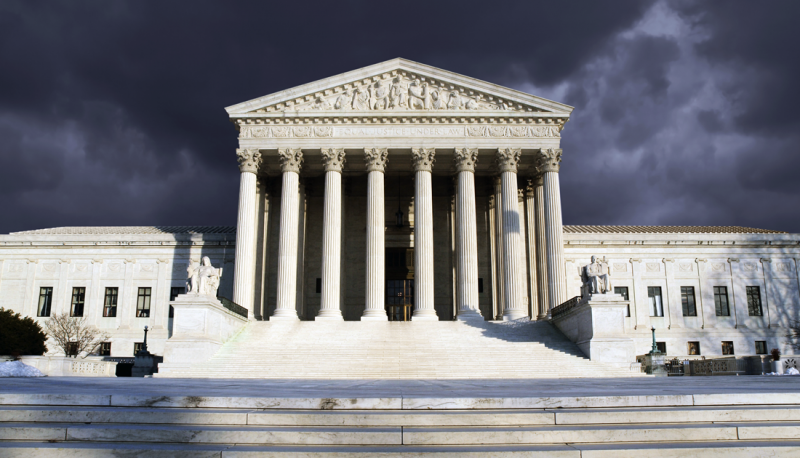“Confirmed Judges, Confirmed Fears” is a blog series documenting the harmful impact of President Trump’s judges on Americans’ rights and liberties. Cases in the series can be found by issue and by judge at this link.
Trump Sixth Circuit judge Joan Larsen argued in dissent that a person cannot even sue a county in federal court for selling foreclosed property to pay off a tax debt, refusing to pay the owner the excess proceeds, and keeping them for itself. The majority rejected that view and ruled that a person can file such a suit in its September 2020 decision in Freed v. Thomas.
For several decades, Donald Freed owned and lived on property in Gratiot County, Michigan. After he fell behind on his property taxes and owed about $1100 in taxes that he did not pay, the county foreclosed on his property, sold it at auction, and “kept all the proceeds of the sale.” Even though there were proceeds from the sale of approximately $50,000 after his taxes were paid, “Freed got nothing.”
Freed sued the county in federal court, contending that the county’s actions violated his constitutional rights. Although it recognized that it was “doubtful” that Freed could win in state court because state law authorized the procedure used, the district court dismissed the case because Freed had not filed in state court, which the court determined violated principles of comity and the Tax Injunction Act (TIA). The TIA states that no federal district court can “enjoin, suspend, or restrain the assessment, levy, or collection” of any state tax where state courts can provide a remedy. Freed appealed.
In a 2-1 decision by judges nominated by Republican presidents other than Trump (Julia Smith Gibbons by George W. Bush and Eugene Siler by George HW Bush), the Sixth Circuit reversed. The majority explained that based on precedent and the text of the law, the TIA did not apply because Freed was not trying to stop the “assessment, levy or collection of a state tax.” Instead, the majority went on, Freed is challenging the “post-collection failure to reimburse him for the excess proceeds from the sale of his property.” Freed’s case was thus about “post-collection constitutional violations that may proceed in federal court,” rather than “a tax case barred by the TIA.” Similarly, the majority continued, the “principle of comity” between federal courts and state governments “does not bar this suit in federal court” based on past precedent, because Freed “does not challenge the validity of Michigan’s tax system.” The majority sent the case back to the district court so that Freed can proceed to try to prove his claims.
Trump judge Larsen dissented. She claimed that the court was “bound” by a 2017 Sixth Circuit decision in the Wayside Church case, in which the appellate court ruled that a district court should not have heard a similar case where a county had made a foreclosure sale of property owned by someone who owed back taxes and similarly kept the excess amount for itself without paying anything to the owner. Larsen explained that the decision was based on several grounds, one of which was the TIA and comity basis relied upon by the district court, which specifically cited the Wayside Church decision.
The majority explained, however, why Larsen was incorrect. The Wayside Church court first held that all federal courts “lacked jurisdiction” over the lawsuit based on a Supreme Court decision concerning property seizure cases, which has since been overturned. As a result, the majority went on, the appellate court “did not have jurisdiction to reach a conclusion” as to whether the TIA and comity ”also precluded the case” from being considered by a federal court. The Wayside Church court’s discussion of the TIA and comity, the majority concluded, was thus “dictum” or non-binding discussion, and did not dictate the result in this case.
As a result of the majority’s ruling, Donald Freed will at least have the opportunity to prove that Gratiot County violated his connotational rights by keeping all the proceeds from the sale of his foreclosed property, even though his tax liability was for much less than the property was sold for, and by failing to pay him the excess. If it had been up to Larsen, however, he would not have had that chance.

